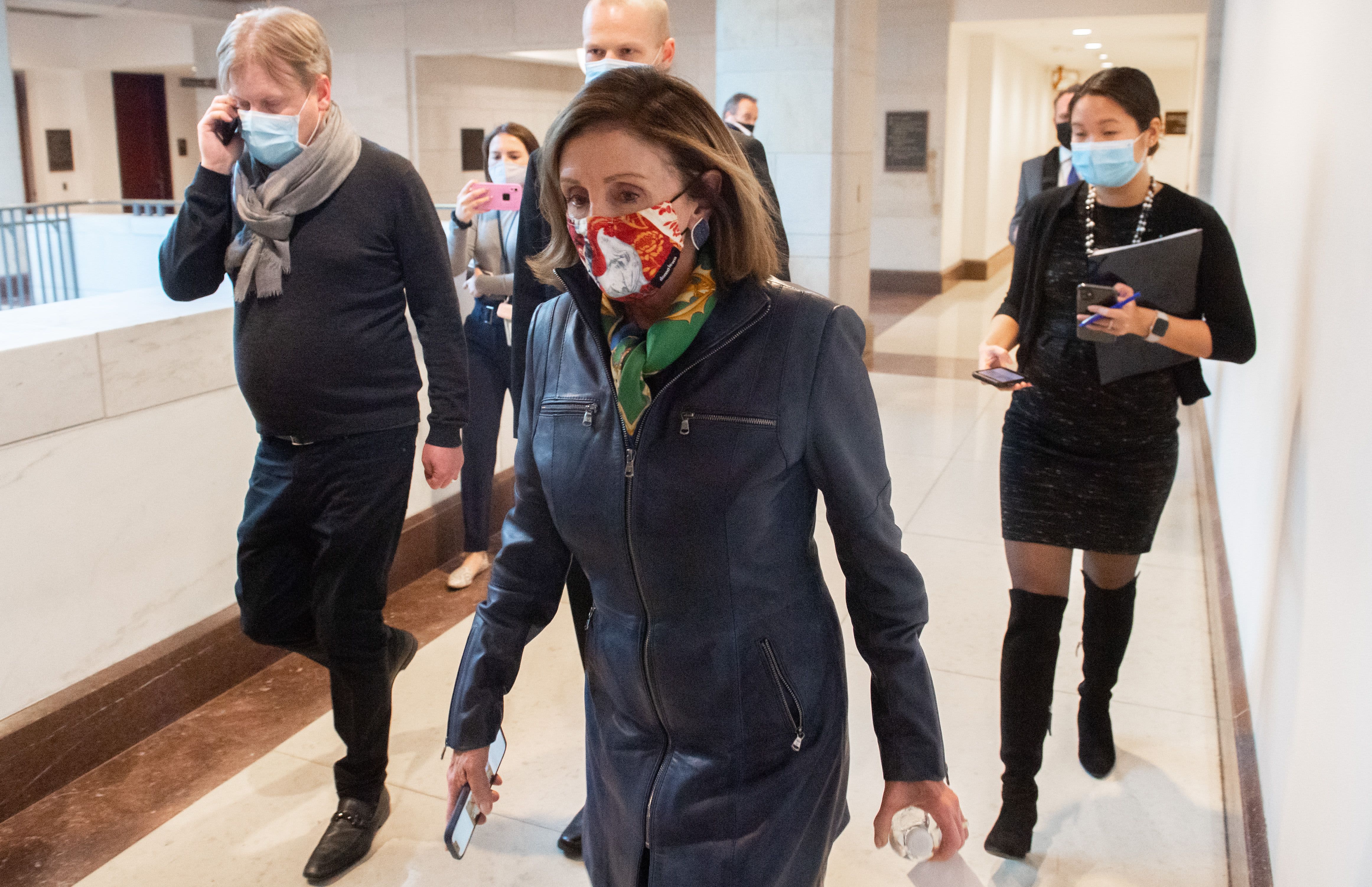House passes bill to prevent government shutdown for two days, sends it to Senate

US Speaker of the House Nancy Pelosi leaves a meeting on Capitol Hill in Washington, DC on December 18, 2020.
Saul Loeb | AFP | Getty Images
The House voted Friday to prevent a government shutdown for two days, sending a temporary funding measure to a Senate where its passage is less certain.
Federal funding will lapse at 12:01 a.m. ET on Saturday if Congress fails to approve a spending bill. The stopgap measure would keep the government running through Sunday until 12:01 a.m. ET Monday morning while congressional leaders try to finalize a full-year funding and coronavirus relief package.
The Senate will have mere hours to approve the bill before government funding expires. Any one senator can block swift passage of legislation in the chamber.
The House will meet again on Sunday, December 20th at 12:00 p.m., with first votes expected no earlier than 1:00 p.m.
Senators including independent Bernie Sanders of Vermont and Republican Josh Hawley of Missouri suggested they could delay approval of a spending bill as they lobby for leadership to include a $1,200 direct payment in a pandemic aid package. Hawley, for his part, tweeted that he would not block the legislation after top Republicans assured him a final relief deal would include “direct assistance to working people.” Lawmakers are expect to include $600 payments, down from the $1,200 checks approved as part of the CARES Act in March.
The House initially tried to pass the funding bill unanimously on Friday. However, Rep. Chip Roy, R-Texas, objected and forced a full recorded vote.
The move delayed the bill’s passage by more than an hour as Congress worked on a tight schedule to beat the shutdown deadline. The House approved it in a 320-60 vote.
Lawmakers, for the second time this month, aim to give themselves more time to package a full-year spending bill and money to lift a health-care system and economy buckling under a relentless coronavirus outbreak. They already approved a one-week extension that kept the lights on through Friday.
Congressional leaders have said for days that they are close to a desperately needed pandemic aid agreement. However, they have failed to iron out the final details of a $900 billion package.
Millions of Americans await help as the virus overwhelms hospitals and health-care workers. Covid-19 now kills thousands of Americans every week.
New economic restrictions to contain the outbreak have sharpened pain for people already scrambling to afford food and housing.
A Republican-backed proposal to limit the Federal Reserve’s emergency lending power now poses the biggest roadblock to a deal. Democrats say the measure would hamstring President-elect Joe Biden‘s ability to respond to the ongoing economic crisis after he takes office on Jan. 20.
Along with direct payments, the developing plan would include a $300 per week federal unemployment supplement. It would extend a pandemic-era expansion of jobless benefits, which 12 million people would lose the day after Christmas.
It is unclear now how the proposal would handle a federal eviction moratorium. The provision lapses at the end of the year, potentially leaving millions vulnerable to eviction.
The package would put at least $300 billion into small business aid. It would include money for Covid-19 vaccine distribution and testing, along with relief for hospitals.
It would also direct funding to schools, which have had to adapt to stay open or go virtual during the pandemic.
The bill will not address state and local government support or liability protections for businesses. Those issues divided Democratic and Republican leaders.
Democrats and many rank-and-file GOP lawmakers, along with bipartisan governors, supported state and local aid as necessary to preserve first-responder jobs and allow officials to contain the pandemic. The GOP argued legal immunity would protect small businesses from frivolous litigation.
This story is developing. Please check back for updates.




